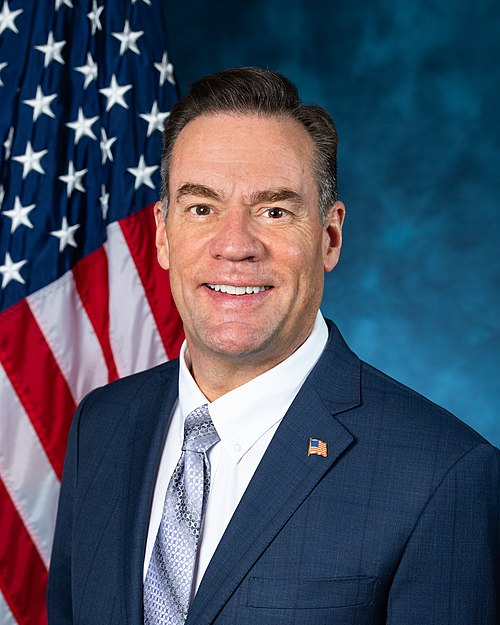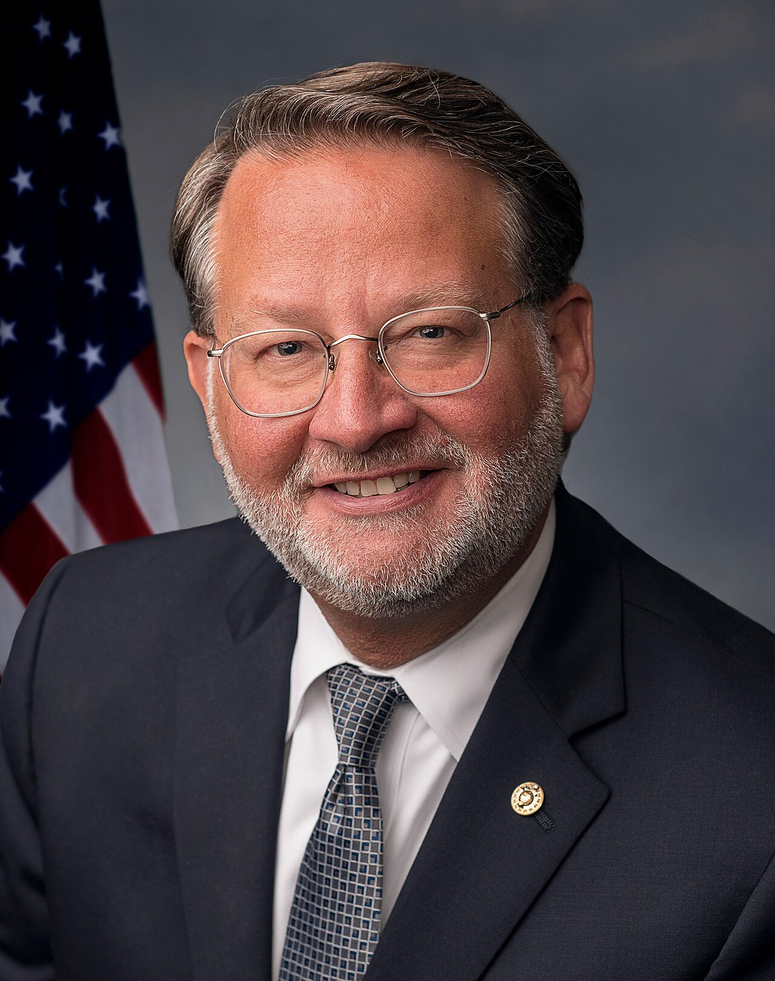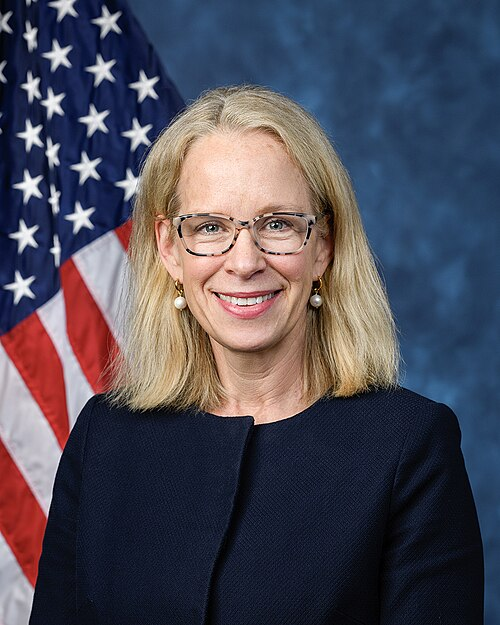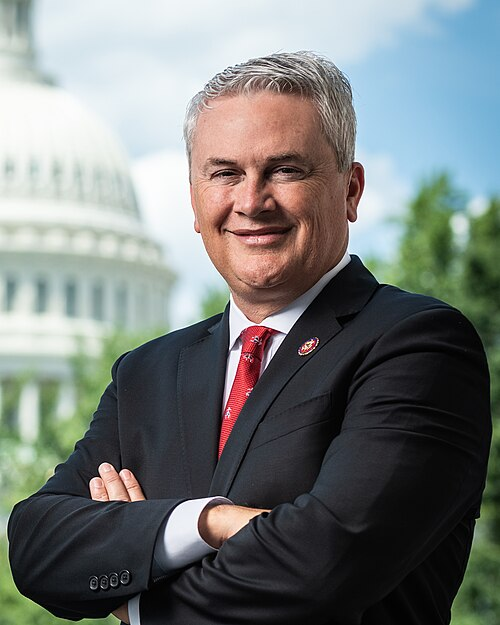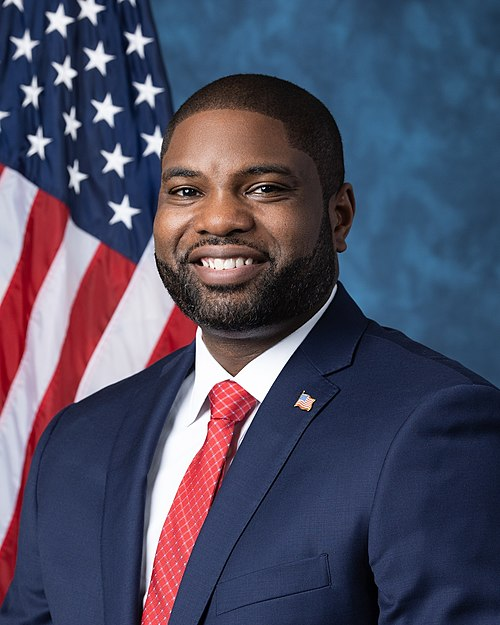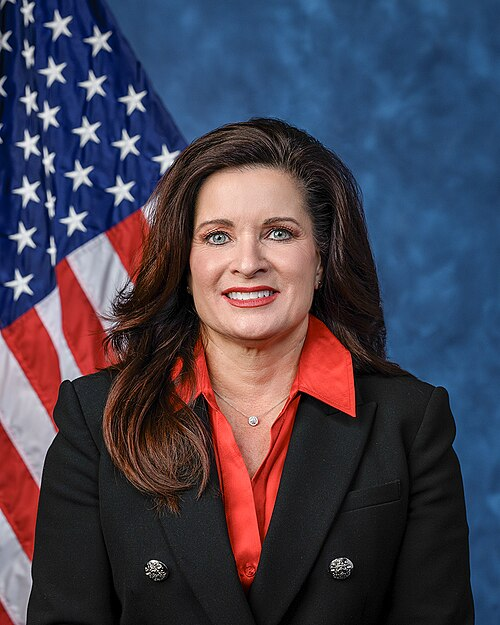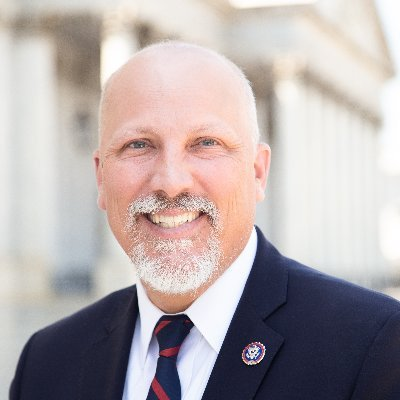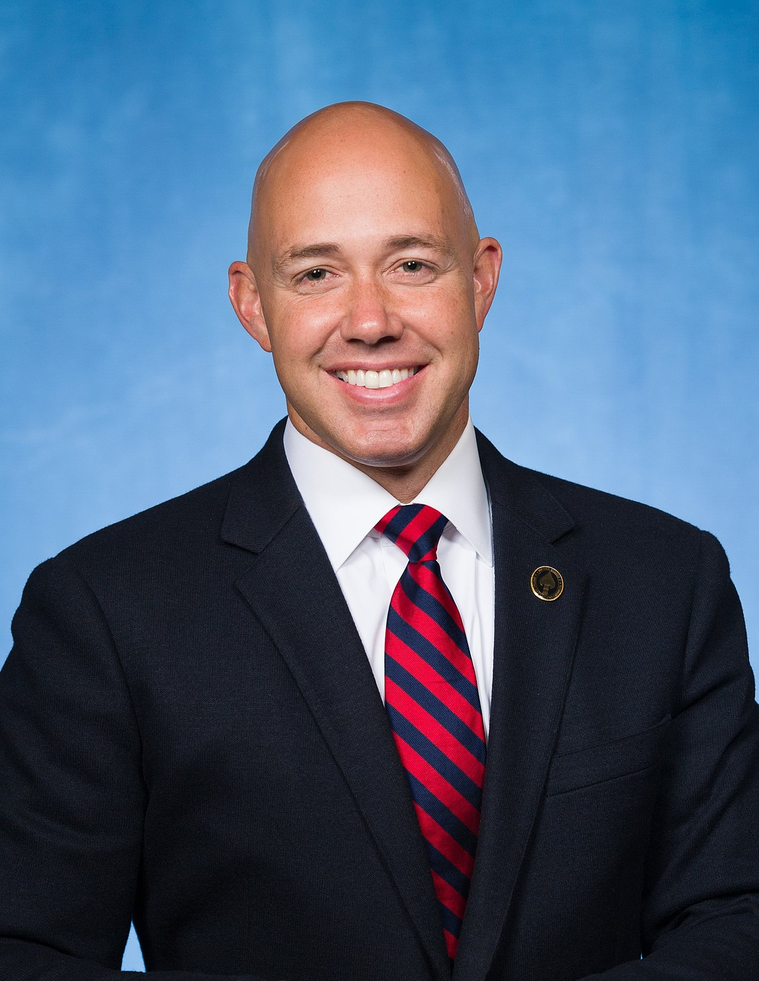|
David Taylor
R / House
|
T
AT&T INC.
|
Purchase
$1,001 - $15,000
|
Feb 02, 2026
|
Jan 29, 2026
|
+11.05%
|
|
David Taylor
R / House
|
AMZN
AMAZON.COM, INC. - COMMON STOCK
|
Purchase
$1,001 - $15,000
|
Feb 02, 2026
|
Jan 29, 2026
|
-5.50%
|
|
Nancy Pelosi
D / House
|
AMZN
AMAZON.COM, INC. - COMMON STOCK
|
Purchase
$500,001 - $1,000,000
|
Jan 23, 2026
|
Jan 16, 2026
|
-4.83%
|
|
Tim Moore
R / House
|
T
AT&T INC.
|
Purchase
$15,001 - $50,000
|
Jan 24, 2026
|
Jan 09, 2026
|
+16.22%
|
|
Nancy Pelosi
D / House
|
AMZN
AMAZON.COM, INC. - COMMON STOCK
|
Purchase
$100,001 - $250,000
|
Jan 23, 2026
|
Dec 30, 2025
|
-2.87%
|
|
Angus S. King Jr.
I / Senate
|
CMCSA
Comcast Corp A
|
Sale (Full)
$1,001 - $15,000
|
Jan 26, 2026
|
Dec 29, 2025
|
+4.78%
|
|
Markwayne Mullin
R / Senate
|
AMZN
Amazon.com, Inc. - Common Stock
|
Purchase
$100,001 - $250,000
|
Jan 16, 2026
|
Dec 29, 2025
|
-2.54%
|
|
Gilbert Ray Cisneros, Jr.
D / House
|
AMZN
AMAZON.COM, INC. - COMMON STOCK
|
Sale
$1,001 - $15,000
|
Jan 12, 2026
|
Dec 24, 2025
|
-2.33%
|
|
Nancy Pelosi
D / House
|
AMZN
AMAZON.COM, INC. - COMMON STOCK
|
Sale
$1,000,001 - $5,000,000
|
Jan 23, 2026
|
Dec 24, 2025
|
-2.33%
|
|
Gilbert Ray Cisneros, Jr.
D / House
|
AMZN
AMAZON.COM, INC. - COMMON STOCK
|
Sale
$1,001 - $15,000
|
Jan 12, 2026
|
Dec 19, 2025
|
-1.34%
|
|
Julie Johnson
D / House
|
CMCSA
COMCAST CORPORATION - CLASS A COMMON STOCK
|
Sale
$1,001 - $15,000
|
Jan 15, 2026
|
Dec 18, 2025
|
+1.74%
|
|
Julie Johnson
D / House
|
VZ
VERIZON COMMUNICATIONS INC. COMMON STOCK
|
Sale
$1,001 - $15,000
|
Jan 15, 2026
|
Dec 18, 2025
|
+16.38%
|
|
Gary C. Peters
D / Senate
|
VZ
Verizon Communications Inc
|
Purchase
$1,001 - $15,000
|
Jan 07, 2026
|
Dec 12, 2025
|
+15.79%
|
|
Cleo Fields
D / House
|
T
AT&T INC.
|
Sale
$15,001 - $50,000
|
Dec 17, 2025
|
Dec 11, 2025
|
+14.06%
|
|
Tim Moore
R / House
|
VZ
VERIZON COMMUNICATIONS INC. COMMON STOCK
|
Purchase
$15,001 - $50,000
|
Dec 19, 2025
|
Dec 10, 2025
|
+19.42%
|
|
Ro Khanna
D / House
|
AMZN
AMAZON.COM INC CMN
|
Sale
$1,001 - $15,000
|
Dec 08, 2025
|
Nov 20, 2025
|
-1.30%
|
|
Ro Khanna
D / House
|
AMZN
DC AMAZON.COM INC CMN
|
Sale
$1,001 - $15,000
|
Dec 08, 2025
|
Nov 20, 2025
|
-1.30%
|
|
Tim Moore
R / House
|
VZ
VERIZON COMMUNICATIONS INC. COMMON STOCK
|
Sale
$100,001 - $250,000
|
Dec 02, 2025
|
Nov 19, 2025
|
+12.07%
|
|
Gilbert Ray Cisneros, Jr.
D / House
|
AMZN
AMAZON.COM, INC. - COMMON STOCK
|
Purchase
$15,001 - $50,000
|
Dec 15, 2025
|
Nov 18, 2025
|
-2.59%
|
|
Gilbert Ray Cisneros, Jr.
D / House
|
CMCSA
COMCAST CORPORATION - CLASS A COMMON STOCK
|
Sale
$1,001 - $15,000
|
Dec 15, 2025
|
Nov 18, 2025
|
+10.10%
|
|
Gilbert Ray Cisneros, Jr.
D / House
|
AMZN
AMAZON.COM, INC. - COMMON STOCK
|
Purchase
$1,001 - $15,000
|
Dec 15, 2025
|
Nov 18, 2025
|
-2.59%
|
|
John Boozman
R / Senate
|
AMZN
Amazon.com Inc
|
Purchase
$1,001 - $15,000
|
Dec 08, 2025
|
Nov 13, 2025
|
-7.09%
|
|
Julie Johnson
D / House
|
VZ
VERIZON COMMUNICATIONS INC. COMMON STOCK
|
Sale
$1,001 - $15,000
|
Dec 11, 2025
|
Nov 13, 2025
|
+13.74%
|
|
Julie Johnson
D / House
|
CMCSA
COMCAST CORPORATION - CLASS A COMMON STOCK
|
Sale
$1,001 - $15,000
|
Dec 11, 2025
|
Nov 13, 2025
|
+9.47%
|
|
Gilbert Ray Cisneros, Jr.
D / House
|
CMCSA
COMCAST CORPORATION - CLASS A COMMON STOCK
|
Sale
$1,001 - $15,000
|
Dec 15, 2025
|
Nov 12, 2025
|
+11.43%
|
|
Ro Khanna
D / House
|
CMCSA
COMCAST CORPORATION CMN CLASS A VOTING
|
Purchase
$1,001 - $15,000
|
Dec 08, 2025
|
Nov 10, 2025
|
+14.29%
|
|
Ro Khanna
D / House
|
CHTR
CHARTER COMMUNICATIONS, INC. CMN
|
Sale
$1,001 - $15,000
|
Dec 08, 2025
|
Nov 10, 2025
|
+6.75%
|
|
Ro Khanna
D / House
|
VZ
VERIZON COMMUNICATIONS INC. CMN
|
Purchase
$1,001 - $15,000
|
Dec 08, 2025
|
Nov 10, 2025
|
+18.73%
|
|
Katie Boyd Britt
R / Senate
|
AMZN
Amazon.com Inc
|
Sale (Partial)
$1,001 - $15,000
|
Jan 26, 2026
|
Nov 07, 2025
|
-9.89%
|
|
Tim Moore
R / House
|
VZ
VERIZON COMMUNICATIONS INC. COMMON STOCK
|
Purchase
$15,001 - $50,000
|
Dec 02, 2025
|
Nov 05, 2025
|
+18.63%
|
|
Ro Khanna
D / House
|
CHTR
CHARTER COMMUNICATIONS, INC. CMN
|
Sale
$1,001 - $15,000
|
Dec 08, 2025
|
Nov 03, 2025
|
+1.42%
|
|
Ro Khanna
D / House
|
VZ
VERIZON COMMUNICATIONS INC. CMN
|
Sale
$1,001 - $15,000
|
Dec 08, 2025
|
Nov 03, 2025
|
+20.15%
|
|
Tim Moore
R / House
|
VZ
VERIZON COMMUNICATIONS INC. COMMON STOCK
|
Purchase
$15,001 - $50,000
|
Nov 12, 2025
|
Oct 31, 2025
|
+19.15%
|
|
David Taylor
R / House
|
T
AT&T INC.
|
Purchase
$1,001 - $15,000
|
Nov 03, 2025
|
Oct 30, 2025
|
+11.00%
|
|
Ro Khanna
D / House
|
VZ
VERIZON COMMUNICATIONS INC
|
Purchase
$1,001 - $15,000
|
Nov 06, 2025
|
Oct 30, 2025
|
+21.24%
|
|
David Taylor
R / House
|
T
AT&T INC.
|
Purchase
$1,001 - $15,000
|
Nov 03, 2025
|
Oct 30, 2025
|
+11.00%
|
|
Ro Khanna
D / House
|
VZ
VERIZON COMMUNICATIONS INC
|
Purchase
$1,001 - $15,000
|
Nov 06, 2025
|
Oct 30, 2025
|
+21.24%
|
|
Michael T. McCaul
R / House
|
T
AT&T INC
|
Sale
$15,001 - $50,000
|
Nov 10, 2025
|
Oct 27, 2025
|
+8.07%
|
|
Michael T. McCaul
R / House
|
CMCSA
COMCAST CORP-CLASS A
|
Sale
$50,001 - $100,000
|
Nov 10, 2025
|
Oct 27, 2025
|
+5.96%
|
|
Michael T. McCaul
R / House
|
AMZN
AMAZON.COM INC
|
Sale
$1,001 - $15,000
|
Nov 10, 2025
|
Oct 27, 2025
|
-0.79%
|
|
Michael T. McCaul
R / House
|
AMZN
AMAZON COM INC COM
|
Sale
$50,001 - $100,000
|
Nov 10, 2025
|
Oct 27, 2025
|
-0.79%
|
|
Michael T. McCaul
R / House
|
CHTR
CHARTER COMMUNICATIONS INC-A
|
Sale
$15,001 - $50,000
|
Nov 10, 2025
|
Oct 27, 2025
|
-7.83%
|
|
Marjorie Taylor Greene
R / House
|
AMZN
AMAZON.COM, INC. - COMMON STOCK
|
Purchase
$1,001 - $15,000
|
Oct 28, 2025
|
Oct 24, 2025
|
-0.77%
|
|
Julia Letlow
R / House
|
AMZN
AMAZON.COM, INC. - COMMON STOCK
|
Sale
$1,001 - $15,000
|
Jan 13, 2026
|
Oct 22, 2025
|
+0.69%
|
|
Ro Khanna
D / House
|
AMZN
AMAZON.COM INC CMN
|
Purchase
$1,001 - $15,000
|
Nov 06, 2025
|
Oct 17, 2025
|
+2.51%
|
|
Gilbert Ray Cisneros, Jr.
D / House
|
AMZN
AMAZON.COM, INC. - COMMON STOCK
|
Purchase
$1,001 - $15,000
|
Nov 18, 2025
|
Oct 17, 2025
|
+2.51%
|
|
Marjorie Taylor Greene
R / House
|
AMZN
AMAZON.COM, INC. - COMMON STOCK
|
Purchase
$1,001 - $15,000
|
Oct 20, 2025
|
Oct 15, 2025
|
+1.39%
|
|
Lisa C. McClain
R / House
|
AMZN
AMAZON.COM, INC. - COMMON STOCK
|
Sale
$1,001 - $15,000
|
Nov 21, 2025
|
Oct 14, 2025
|
+0.55%
|
|
Tim Moore
R / House
|
VZ
VERIZON COMMUNICATIONS INC. COMMON STOCK
|
Purchase
$15,001 - $50,000
|
Nov 12, 2025
|
Oct 10, 2025
|
+14.43%
|
|
Marjorie Taylor Greene
R / House
|
AMZN
AMAZON.COM, INC. - COMMON STOCK
|
Purchase
$1,001 - $15,000
|
Oct 20, 2025
|
Oct 09, 2025
|
-3.19%
|
|
Gilbert Ray Cisneros, Jr.
D / House
|
CMCSA
COMCAST CORPORATION - CLASS A COMMON STOCK
|
Sale
$1,001 - $15,000
|
Nov 18, 2025
|
Oct 09, 2025
|
+1.59%
|
|
Ro Khanna
D / House
|
VZ
VERIZON COMMUNICATIONS INC. CMN
|
Sale
$1,001 - $15,000
|
Nov 06, 2025
|
Oct 07, 2025
|
+12.48%
|
|
Tim Moore
R / House
|
VZ
VERIZON COMMUNICATIONS INC. COMMON STOCK
|
Purchase
$50,001 - $100,000
|
Nov 12, 2025
|
Oct 07, 2025
|
+12.48%
|
|
Ro Khanna
D / House
|
CMCSA
COMCAST CORPORATION CMN CLASS A VOTING
|
Sale
$15,001 - $50,000
|
Nov 06, 2025
|
Oct 07, 2025
|
-0.47%
|
|
Ro Khanna
D / House
|
CHTR
[CHARTER COMMUNICATIONS, INC. CMN
|
Purchase
$1,001 - $15,000
|
Nov 06, 2025
|
Oct 07, 2025
|
-20.44%
|
|
Julia Letlow
R / House
|
AMZN
AMAZON.COM, INC. - COMMON STOCK
|
Purchase
$1,001 - $15,000
|
Jan 13, 2026
|
Oct 01, 2025
|
-0.45%
|
|
Ro Khanna
D / House
|
CMCSA
COMCAST CORPORATION CMN CLASS A VOTING
|
Purchase
$1,001 - $15,000
|
Oct 03, 2025
|
Sep 29, 2025
|
-4.16%
|
|
Lisa C. McClain
R / House
|
AMZN
AMAZON.COM, INC. - COMMON STOCK
|
Sale
$1,001 - $15,000
|
Oct 22, 2025
|
Sep 25, 2025
|
-0.64%
|
|
Michael T. McCaul
R / House
|
AMZN
AMAZON COM INC COM
|
Sale
$1,001 - $15,000
|
Oct 10, 2025
|
Sep 25, 2025
|
-0.64%
|
|
Ro Khanna
D / House
|
AMZN
AMAZON.COM INC CMN
|
Sale
$1,001 - $15,000
|
Oct 03, 2025
|
Sep 25, 2025
|
-0.64%
|
|
Val T. Hoyle
D / House
|
CMCSA
COMCAST CORPORATION - CLASS A COMMON STOCK
|
Sale
$1,001 - $15,000
|
Oct 10, 2025
|
Sep 23, 2025
|
-4.33%
|
|
Val T. Hoyle
D / House
|
AMZN
AMAZON.COM, INC. - COMMON STOCK
|
Sale
$15,001 - $50,000
|
Oct 10, 2025
|
Sep 23, 2025
|
-0.99%
|
|
Ro Khanna
D / House
|
AMZN
AMAZON.COM INC CMN
|
Purchase
$1,001 - $15,000
|
Oct 03, 2025
|
Sep 19, 2025
|
-5.65%
|
|
Cleo Fields
D / House
|
AMZN
AMAZON.COM, INC. - COMMON STOCK
|
Purchase
$15,001 - $50,000
|
Sep 30, 2025
|
Sep 17, 2025
|
-6.66%
|
|
Lisa C. McClain
R / House
|
AMZN
AMAZON.COM, INC. - COMMON STOCK
|
Purchase
$1,001 - $15,000
|
Oct 22, 2025
|
Sep 11, 2025
|
-6.22%
|
|
Cleo Fields
D / House
|
AMZN
AMAZON.COM, INC. - COMMON STOCK
|
Purchase
$50,001 - $100,000
|
Sep 30, 2025
|
Sep 10, 2025
|
-7.22%
|
|
Val T. Hoyle
D / House
|
AMZN
AMAZON.COM, INC. - COMMON STOCK
|
Purchase
$1,001 - $15,000
|
Oct 10, 2025
|
Sep 10, 2025
|
-7.22%
|
|
Ro Khanna
D / House
|
CHTR
CHARTER COMMUNICATIONS, INC. CMN
|
Sale
$1,001 - $15,000
|
Oct 03, 2025
|
Sep 05, 2025
|
-19.25%
|
|
Ro Khanna
D / House
|
CMCSA
COMCAST CORPORATION CMN CLASS A VOTING
|
Purchase
$1,001 - $15,000
|
Oct 03, 2025
|
Sep 05, 2025
|
-13.75%
|
|
Ro Khanna
D / House
|
AMZN
AMAZON.COM INC CMN
|
Sale
$1,001 - $15,000
|
Oct 03, 2025
|
Sep 05, 2025
|
-8.88%
|
|
Ro Khanna
D / House
|
VZ
VERIZON COMMUNICATIONS INC. CMN
|
Purchase
$1,001 - $15,000
|
Oct 03, 2025
|
Sep 05, 2025
|
+1.40%
|
|
Sheldon Whitehouse
D / Senate
|
VZ
Verizon Communications Inc
|
Sale (Full)
$1,001 - $15,000
|
Oct 03, 2025
|
Sep 04, 2025
|
+2.17%
|
|
Cleo Fields
D / House
|
AMZN
AMAZON.COM, INC. - COMMON STOCK
|
Purchase
$100,001 - $250,000
|
Sep 30, 2025
|
Sep 03, 2025
|
-6.76%
|
|
Ro Khanna
D / House
|
CMCSA
COMCAST CORPORATION CMN CLASS A VOTING
|
Sale
$1,001 - $15,000
|
Sep 09, 2025
|
Aug 26, 2025
|
-13.47%
|
|
Ro Khanna
D / House
|
CHTR
CHARTER COMMUNICATIONS, INC. CMN
|
Purchase
$1,001 - $15,000
|
Sep 09, 2025
|
Aug 26, 2025
|
-21.24%
|
|
Ro Khanna
D / House
|
CMCSA
COMCAST CORPORATION CMN CLASS A VOTING
|
Sale
$1,001 - $15,000
|
Sep 09, 2025
|
Aug 26, 2025
|
-13.47%
|
|
Ro Khanna
D / House
|
CHTR
CHARTER COMMUNICATIONS, INC. CMN
|
Purchase
$1,001 - $15,000
|
Sep 09, 2025
|
Aug 26, 2025
|
-21.24%
|
|
Michael T. McCaul
R / House
|
T
AT&T INC
|
Sale
$100,001 - $250,000
|
Sep 11, 2025
|
Aug 22, 2025
|
-10.11%
|
|
Michael T. McCaul
R / House
|
T
AT&T INC
|
Sale
$100,001 - $250,000
|
Sep 11, 2025
|
Aug 22, 2025
|
-10.11%
|
|
Michael T. McCaul
R / House
|
CHTR
CHARTER COMMUNICATIONS INC-A
|
Sale
$1,001 - $15,000
|
Sep 11, 2025
|
Aug 21, 2025
|
-23.23%
|
|
Michael T. McCaul
R / House
|
AMZN
AMAZON COM INC COM
|
Sale
$50,001 - $100,000
|
Sep 11, 2025
|
Aug 21, 2025
|
-6.31%
|
|
Michael T. McCaul
R / House
|
CMCSA
COMCAST CORP-CLASS A
|
Sale
$15,001 - $50,000
|
Sep 11, 2025
|
Aug 21, 2025
|
-14.83%
|
|
Michael T. McCaul
R / House
|
CMCSA
COMCAST CORP-CLASS A
|
Sale
$15,001 - $50,000
|
Sep 11, 2025
|
Aug 21, 2025
|
-14.83%
|
|
Michael T. McCaul
R / House
|
CHTR
CHARTER COMMUNICATIONS INC-A
|
Sale
$1,001 - $15,000
|
Sep 11, 2025
|
Aug 21, 2025
|
-23.23%
|
|
Michael T. McCaul
R / House
|
AMZN
AMAZON COM INC COM
|
Sale
$50,001 - $100,000
|
Sep 11, 2025
|
Aug 21, 2025
|
-6.31%
|
|
Ro Khanna
D / House
|
AMZN
AMAZON.COM INC CMN
|
Purchase
$1,001 - $15,000
|
Sep 09, 2025
|
Aug 19, 2025
|
-8.28%
|
|
Ro Khanna
D / House
|
AMZN
AMAZON.COM INC CMN
|
Purchase
$1,001 - $15,000
|
Sep 09, 2025
|
Aug 19, 2025
|
-8.28%
|
|
Kelly Morrison
D / House
|
VZ
VERIZON COMMUNICATIONS INC. COMMON STOCK
|
Sale
$1,001 - $15,000
|
Sep 11, 2025
|
Aug 19, 2025
|
-1.14%
|
|
Cleo Fields
D / House
|
AMZN
AMAZON.COM, INC. - COMMON STOCK
|
Purchase
$50,001 - $100,000
|
Sep 03, 2025
|
Aug 15, 2025
|
-8.94%
|
|
Cleo Fields
D / House
|
AMZN
AMAZON.COM, INC. - COMMON STOCK
|
Purchase
$15,001 - $50,000
|
Sep 03, 2025
|
Aug 15, 2025
|
-8.94%
|
|
Julie Johnson
D / House
|
VZ
VERIZON COMMUNICATIONS INC. COMMON STOCK
|
Sale
$1,001 - $15,000
|
Sep 11, 2025
|
Aug 14, 2025
|
+3.17%
|
|
Julie Johnson
D / House
|
CMCSA
COMCAST CORPORATION - CLASS A COMMON STOCK
|
Sale
$1,001 - $15,000
|
Sep 11, 2025
|
Aug 14, 2025
|
-11.33%
|
|
Gilbert Ray Cisneros, Jr.
D / House
|
CMCSA
COMCAST CORPORATION - CLASS A COMMON STOCK
|
Sale
$1,001 - $15,000
|
Sep 12, 2025
|
Aug 05, 2025
|
-13.03%
|
|
Scott Franklin
R / House
|
CMCSA
COMCAST CORPORATION - CLASS A COMMON STOCK
|
Sale
$1,001 - $15,000
|
Aug 14, 2025
|
Aug 04, 2025
|
-12.66%
|
|
Ro Khanna
D / House
|
CHTR
CHARTER COMMUNICATIONS, INC. CMN
|
Purchase
$1,001 - $15,000
|
Sep 09, 2025
|
Aug 04, 2025
|
-22.01%
|
|
Ro Khanna
D / House
|
CHTR
CHARTER COMMUNICATIONS, INC. CMN
|
Purchase
$1,001 - $15,000
|
Sep 09, 2025
|
Aug 04, 2025
|
-22.01%
|
|
Ro Khanna
D / House
|
AMZN
AMAZON.COM INC CMN
|
Purchase
$1,001 - $15,000
|
Sep 09, 2025
|
Aug 04, 2025
|
-2.19%
|
|
Ro Khanna
D / House
|
VZ
VERIZON COMMUNICATIONS INC. CMN
|
Purchase
$1,001 - $15,000
|
Sep 09, 2025
|
Aug 04, 2025
|
+2.26%
|
|
Scott Franklin
R / House
|
CMCSA
COMCAST CORPORATION - CLASS A COMMON STOCK
|
Sale
$15,001 - $50,000
|
Aug 14, 2025
|
Aug 04, 2025
|
-12.66%
|
|
Ro Khanna
D / House
|
AMZN
AMAZON.COM INC CMN
|
Purchase
$1,001 - $15,000
|
Sep 09, 2025
|
Aug 04, 2025
|
-2.19%
|
|
Ro Khanna
D / House
|
VZ
VERIZON COMMUNICATIONS INC. CMN
|
Purchase
$1,001 - $15,000
|
Sep 09, 2025
|
Aug 04, 2025
|
+2.26%
|
|
Lisa C. McClain
R / House
|
AMZN
AMAZON.COM, INC. - COMMON STOCK
|
Sale
$1,001 - $15,000
|
Aug 13, 2025
|
Aug 04, 2025
|
-2.19%
|
|
Scott Franklin
R / House
|
CMCSA
COMCAST CORPORATION - CLASS A COMMON STOCK
|
Sale
$1,001 - $15,000
|
Aug 14, 2025
|
Aug 04, 2025
|
-12.66%
|
|
Tim Moore
R / House
|
VZ
VERIZON COMMUNICATIONS INC. COMMON STOCK
|
Sale
$15,001 - $50,000
|
Sep 03, 2025
|
Aug 01, 2025
|
+0.80%
|
|
Cleo Fields
D / House
|
AMZN
AMAZON.COM, INC. - COMMON STOCK
|
Purchase
$100,001 - $250,000
|
Sep 03, 2025
|
Aug 01, 2025
|
-5.34%
|
|
Cleo Fields
D / House
|
AMZN
AMAZON.COM, INC. - COMMON STOCK
|
Purchase
$100,001 - $250,000
|
Aug 06, 2025
|
Jul 29, 2025
|
-10.31%
|
|
Tim Moore
R / House
|
VZ
VERIZON COMMUNICATIONS INC. COMMON STOCK
|
Purchase
$15,001 - $50,000
|
Aug 05, 2025
|
Jul 29, 2025
|
+3.57%
|
|
Ro Khanna
D / House
|
CHTR
CHARTER COMMUNICATIONS, INC. CMN
|
Sale
$1,001 - $15,000
|
Aug 07, 2025
|
Jul 25, 2025
|
-34.24%
|
|
Ro Khanna
D / House
|
CHTR
CHARTER COMMUNICATIONS, INC. CMN
|
Sale
$1,001 - $15,000
|
Aug 07, 2025
|
Jul 25, 2025
|
-34.24%
|
|
Ro Khanna
D / House
|
CMCSA
COMCAST CORPORATION CMN CLASS A VOTING
|
Purchase
$1,001 - $15,000
|
Aug 07, 2025
|
Jul 25, 2025
|
-14.81%
|
|
Ro Khanna
D / House
|
CMCSA
COMCAST CORPORATION CMN CLASS A VOTING
|
Purchase
$1,001 - $15,000
|
Aug 07, 2025
|
Jul 25, 2025
|
-14.81%
|
|
Lisa C. McClain
R / House
|
AMZN
AMAZON.COM, INC. - COMMON STOCK
|
Sale
$1,001 - $15,000
|
Aug 13, 2025
|
Jul 22, 2025
|
-9.91%
|
|
David Taylor
R / House
|
T
AT&T INC.
|
Purchase
$1,001 - $15,000
|
Sep 02, 2025
|
Jul 18, 2025
|
-6.63%
|
|
David Taylor
R / House
|
T
AT&T INC.
|
Purchase
$1,001 - $15,000
|
Sep 02, 2025
|
Jul 18, 2025
|
-6.63%
|
|
Cleo Fields
D / House
|
AMZN
AMAZON.COM, INC. - COMMON STOCK
|
Purchase
$100,001 - $250,000
|
Aug 06, 2025
|
Jul 16, 2025
|
-8.83%
|
|
Cleo Fields
D / House
|
AMZN
AMAZON.COM, INC. - COMMON STOCK
|
Purchase
$1,001 - $15,000
|
Aug 06, 2025
|
Jul 14, 2025
|
-9.82%
|
|
Michael T. McCaul
R / House
|
AMZN
AMAZON COM INC COM
|
Sale
$15,001 - $50,000
|
Aug 12, 2025
|
Jul 11, 2025
|
-9.74%
|
|
Michael T. McCaul
R / House
|
AMZN
AMAZON COM INC COM
|
Sale
$15,001 - $50,000
|
Aug 13, 2025
|
Jul 11, 2025
|
-9.74%
|
|
Ritchie Torres
D / House
|
VZ
C�������: THIS INVESTMENT IS HELD WITHIN A PUBLICLY AVAILABLE, WIDELY HELD INDEPENDENTLY MANAGED PORTFOLIO OVER WHICH I HAVE NO AUTHORITY TO EXERCISE CONTROL OVER OR INFLUENCE THE FINANCIAL INTERESTS HELD BY THE PORTFOLIO. THE ASSETS OF THE PORTFOLIO ARE WIDELY DIVERSIFIED, AND ALL INVESTMENT DECISIONS ARE MADE SOLELY BY THE INDEPENDENT MANAGER, WITHOUT MY INPUT OR DIRECTION. VERIZON COMMUNICATIONS INC. COMMON STOCK
|
Sale
$1,001 - $15,000
|
Aug 20, 2025
|
Jul 11, 2025
|
+4.47%
|
|
Lisa C. McClain
R / House
|
VZ
VERIZON COMMUNICATIONS INC. COMMON STOCK
|
Sale
$1,001 - $15,000
|
Aug 13, 2025
|
Jul 10, 2025
|
+3.75%
|
|
Lisa C. McClain
R / House
|
T
AT&T INC.
|
Sale
$1,001 - $15,000
|
Aug 13, 2025
|
Jul 10, 2025
|
-9.43%
|
|
James Comer
R / House
|
T
AT&T INC.
|
Sale
$1,001 - $15,000
|
Aug 11, 2025
|
Jul 03, 2025
|
-12.03%
|
|
Val T. Hoyle
D / House
|
AMZN
AMAZON.COM, INC. - COMMON STOCK
|
Purchase
$1,001 - $15,000
|
Sep 12, 2025
|
Jul 02, 2025
|
-8.00%
|
|
Julia Letlow
R / House
|
T
AT&T INC.
|
Sale
$1,001 - $15,000
|
Jan 13, 2026
|
Jul 02, 2025
|
-12.79%
|
|
Ro Khanna
D / House
|
CMCSA
COMCAST CORPORATION CMN CLASS A VOTING
|
Purchase
$1,001 - $15,000
|
Aug 07, 2025
|
Jul 01, 2025
|
-24.83%
|
|
Ro Khanna
D / House
|
CMCSA
COMCAST CORPORATION CMN CLASS A VOTING
|
Purchase
$1,001 - $15,000
|
Aug 07, 2025
|
Jul 01, 2025
|
-24.83%
|
|
Ro Khanna
D / House
|
CHTR
CHARTER COMMUNICATIONS, INC. CMN
|
Sale
$15,001 - $50,000
|
Aug 07, 2025
|
Jul 01, 2025
|
-56.30%
|
|
Ro Khanna
D / House
|
CHTR
CHARTER COMMUNICATIONS, INC. CMN
|
Sale
$15,001 - $50,000
|
Aug 07, 2025
|
Jul 01, 2025
|
-56.30%
|
|
Cleo Fields
D / House
|
T
AT&T INC.
|
Purchase
$15,001 - $50,000
|
Jul 01, 2025
|
Jun 30, 2025
|
-15.33%
|
|
Cleo Fields
D / House
|
AMZN
AMAZON.COM, INC. - COMMON STOCK
|
Purchase
$100,001 - $250,000
|
Jul 01, 2025
|
Jun 30, 2025
|
-8.19%
|
|
Michael T. McCaul
R / House
|
AMZN
AMAZON COM INC COM
|
Sale
$250,001 - $500,000
|
Jul 07, 2025
|
Jun 27, 2025
|
-10.18%
|
|
Michael T. McCaul
R / House
|
T
AT&T INC
|
Sale
$100,001 - $250,000
|
Jul 07, 2025
|
Jun 27, 2025
|
-12.65%
|
|
Cleo Fields
D / House
|
AMZN
AMAZON.COM, INC. - COMMON STOCK
|
Purchase
$100,001 - $250,000
|
Jul 01, 2025
|
Jun 25, 2025
|
-6.28%
|
|
Cleo Fields
D / House
|
AMZN
AMAZON.COM, INC. - COMMON STOCK
|
Purchase
$100,001 - $250,000
|
Jul 01, 2025
|
Jun 25, 2025
|
-6.28%
|
|
Cleo Fields
D / House
|
AMZN
AMAZON.COM, INC. - COMMON STOCK
|
Purchase
$100,001 - $250,000
|
Jul 01, 2025
|
Jun 25, 2025
|
-6.28%
|
|
Lisa C. McClain
R / House
|
VZ
VERIZON COMMUNICATIONS INC. COMMON STOCK
|
Purchase
$1,001 - $15,000
|
Aug 13, 2025
|
Jun 24, 2025
|
-0.89%
|
|
Ro Khanna
D / House
|
CMCSA
COMCAST CORPORATION CMN CLASS A VOTING
|
Sale
$15,001 - $50,000
|
Jul 09, 2025
|
Jun 23, 2025
|
-23.42%
|
|
Robert Bresnahan
R / House
|
AMZN
AMAZON.COM, INC. - COMMON STOCK
|
Sale
$1,001 - $15,000
|
Jul 08, 2025
|
Jun 23, 2025
|
-5.78%
|
|
Ro Khanna
D / House
|
CHTR
CHARTER COMMUNICATIONS, INC. CMN
|
Purchase
$1,001 - $15,000
|
Jul 09, 2025
|
Jun 23, 2025
|
-55.66%
|
|
J. French Hill
R / House
|
T
AT&T INC.
|
Sale
$1,001 - $15,000
|
Jul 24, 2025
|
Jun 23, 2025
|
-15.76%
|
|
Ro Khanna
D / House
|
VZ
"VERIZON COMMUNICATIONS INC
|
Sale
$1,001 - $15,000
|
Jul 09, 2025
|
Jun 20, 2025
|
-0.81%
|
|
Ro Khanna
D / House
|
VZ
VERIZON COMMUNICATIONS INC
|
Sale
$1,001 - $15,000
|
Jul 09, 2025
|
Jun 20, 2025
|
-0.81%
|
|
Lisa C. McClain
R / House
|
AMZN
AMAZON.COM, INC. - COMMON STOCK
|
Purchase
$1,001 - $15,000
|
Aug 13, 2025
|
Jun 17, 2025
|
-9.76%
|
|
Lisa C. McClain
R / House
|
T
AT&T INC.
|
Purchase
$1,001 - $15,000
|
Aug 13, 2025
|
Jun 17, 2025
|
-14.65%
|
|
Michael T. McCaul
R / House
|
CMCSA
COMCAST CORP-CLASS A
|
Sale
$50,001 - $100,000
|
Jul 07, 2025
|
Jun 16, 2025
|
-24.59%
|
|
Michael T. McCaul
R / House
|
CHTR
CHARTER COMMUNICATIONS INC-A
|
Sale
$15,001 - $50,000
|
Jul 07, 2025
|
Jun 16, 2025
|
-52.89%
|
|
Michael T. McCaul
R / House
|
AMZN
AMAZON.COM INC
|
Sale
$15,001 - $50,000
|
Jul 07, 2025
|
Jun 16, 2025
|
-9.41%
|
|
Michael T. McCaul
R / House
|
AMZN
AMAZON COM INC COM
|
Sale
$100,001 - $250,000
|
Jul 07, 2025
|
Jun 16, 2025
|
-9.41%
|
|
Cleo Fields
D / House
|
AMZN
AMAZON.COM, INC. - COMMON STOCK
|
Purchase
$50,001 - $100,000
|
Jul 01, 2025
|
Jun 09, 2025
|
-10.40%
|
|
Cleo Fields
D / House
|
AMZN
AMAZON.COM, INC. - COMMON STOCK
|
Purchase
$100,001 - $250,000
|
Jul 01, 2025
|
Jun 09, 2025
|
-10.40%
|
|
Lisa C. McClain
R / House
|
AMZN
AMAZON.COM, INC. - COMMON STOCK
|
Purchase
$1,001 - $15,000
|
Aug 13, 2025
|
Jun 09, 2025
|
-10.40%
|
|
Val T. Hoyle
D / House
|
AMZN
AMAZON.COM, INC. - COMMON STOCK
|
Purchase
$1,001 - $15,000
|
Sep 12, 2025
|
Jun 06, 2025
|
-8.88%
|
|
Ro Khanna
D / House
|
AMZN
AMAZON.COM INC CMN
|
Purchase
$1,001 - $15,000
|
Jul 09, 2025
|
Jun 06, 2025
|
-8.88%
|
|
Cleo Fields
D / House
|
AMZN
AMAZON.COM, INC. - COMMON STOCK
|
Purchase
$100,001 - $250,000
|
Jul 01, 2025
|
Jun 05, 2025
|
-7.20%
|
|
Ro Khanna
D / House
|
AMZN
AMAZON.COM INC CMN
|
Purchase
$1,001 - $15,000
|
Jun 10, 2025
|
May 28, 2025
|
-6.56%
|
|
Ro Khanna
D / House
|
CHTR
CHARTER COMMUNICATIONS, INC. CMN
|
Sale
$15,001 - $50,000
|
Jun 10, 2025
|
May 19, 2025
|
-60.55%
|
|
Ro Khanna
D / House
|
AMZN
AMAZON.COM INC CMN
|
Purchase
$1,001 - $15,000
|
Jun 10, 2025
|
May 19, 2025
|
-5.93%
|
|
Ro Khanna
D / House
|
CMCSA
COMCAST CORPORATION CMN _CLASS A VOTING
|
Purchase
$15,001 - $50,000
|
Jun 10, 2025
|
May 19, 2025
|
-26.90%
|
|
John Boozman
R / Senate
|
AMZN
Amazon.com Inc
|
Purchase
$1,001 - $15,000
|
Jun 14, 2025
|
May 16, 2025
|
-5.75%
|
|
Jefferson Shreve
R / House
|
CMCSA
COMCAST CORPORATION - CLASS A COMMON STOCK
|
Sale
$15,001 - $50,000
|
Jun 22, 2025
|
May 12, 2025
|
-27.41%
|
|
Jefferson Shreve
R / House
|
VZ
VERIZON COMMUNICATIONS INC. COMMON STOCK
|
Sale
$15,001 - $50,000
|
Jun 22, 2025
|
May 12, 2025
|
-6.73%
|
|
Jefferson Shreve
R / House
|
CHTR
CHARTER COMMUNICATIONS, INC. - CLASS A COMMON STOCK
|
Sale
$15,001 - $50,000
|
Jun 22, 2025
|
May 12, 2025
|
-60.73%
|
|
Jefferson Shreve
R / House
|
AMZN
AMAZON.COM, INC. - COMMON STOCK
|
Sale
$250,001 - $500,000
|
Jun 22, 2025
|
May 12, 2025
|
-9.53%
|
|
Jefferson Shreve
R / House
|
T
AT&T INC.
|
Sale
$15,001 - $50,000
|
Jun 22, 2025
|
May 12, 2025
|
-15.16%
|
|
Thomas H. Kean, Jr.
R / House
|
AMZN
AMAZON.COM, INC. - COMMON STOCK
|
Purchase
$1,001 - $15,000
|
Jun 17, 2025
|
May 08, 2025
|
-4.04%
|
|
Marjorie Taylor Greene
R / House
|
AMZN
AMAZON.COM, INC. - COMMON STOCK
|
Purchase
$1,001 - $15,000
|
May 06, 2025
|
May 05, 2025
|
-0.79%
|
|
Katie Boyd Britt
R / Senate
|
AMZN
Amazon.com Inc
|
Purchase
$1,001 - $15,000
|
Jan 26, 2026
|
Apr 30, 2025
|
-1.49%
|
|
Gilbert Ray Cisneros, Jr.
D / House
|
AMZN
AMAZON.COM, INC. - COMMON STOCK
|
Sale
$1,001 - $15,000
|
May 06, 2025
|
Apr 29, 2025
|
-3.46%
|
|
Thomas H. Kean, Jr.
R / House
|
AMZN
AMAZON.COM, INC. - COMMON STOCK
|
Purchase
$1,001 - $15,000
|
May 15, 2025
|
Apr 24, 2025
|
-4.64%
|
|
Jonathan L. Jackson
D / House
|
AMZN
AMAZON.COM, INC. - COMMON STOCK
|
Purchase
$1,001 - $15,000
|
Aug 25, 2025
|
Apr 23, 2025
|
-3.32%
|
|
Ro Khanna
D / House
|
AMZN
AMAZON.COM INC CMN
|
Sale
$1,001 - $15,000
|
May 12, 2025
|
Apr 23, 2025
|
-3.32%
|
|
Bruce Westerman
R / House
|
AMZN
AMAZON.COM, INC. - COMMON STOCK
|
Sale
$1,001 - $15,000
|
May 12, 2025
|
Apr 21, 2025
|
+1.18%
|
|
Jonathan L. Jackson
D / House
|
AMZN
AMAZON.COM, INC. - COMMON STOCK
|
Sale
$15,001 - $50,000
|
May 13, 2025
|
Apr 16, 2025
|
-1.20%
|
|
Ro Khanna
D / House
|
AMZN
AMAZON.COM INC CMN
|
Sale
$1,001 - $15,000
|
May 12, 2025
|
Apr 15, 2025
|
-2.11%
|
|
Ro Khanna
D / House
|
CMCSA
COMCAST CORPORATION CMN CLASS A VOTING
|
Sale
$1,001 - $15,000
|
May 12, 2025
|
Apr 15, 2025
|
-36.43%
|
|
Katie Boyd Britt
R / Senate
|
AMZN
Amazon.com Inc
|
Purchase
$1,001 - $15,000
|
Jan 26, 2026
|
Apr 14, 2025
|
-3.48%
|
|
Dan Newhouse
R / House
|
AMZN
AMAZON.COM, INC. - COMMON STOCK
|
Sale
$1,001 - $15,000
|
May 16, 2025
|
Apr 11, 2025
|
-6.56%
|
|
Dan Newhouse
R / House
|
T
AT&T INC.
|
Sale
$1,001 - $15,000
|
May 16, 2025
|
Apr 11, 2025
|
-25.08%
|
|
Dan Newhouse
R / House
|
VZ
VERIZON COMMUNICATIONS INC. COMMON STOCK
|
Sale
$1,001 - $15,000
|
May 16, 2025
|
Apr 11, 2025
|
-19.31%
|
|
Michael T. McCaul
R / House
|
AMZN
AMAZON.COM INC
|
Sale
$15,001 - $50,000
|
May 12, 2025
|
Apr 11, 2025
|
-6.56%
|
|
Michael T. McCaul
R / House
|
AMZN
AMAZON.COM INC
|
Sale
$15,001 - $50,000
|
May 12, 2025
|
Apr 11, 2025
|
-6.56%
|
|
Ro Khanna
D / House
|
CMCSA
COMCAST CORPORATION CMN CLASS A VOTING
|
Purchase
$1,001 - $15,000
|
May 12, 2025
|
Apr 09, 2025
|
-37.15%
|
|
Robert Bresnahan
R / House
|
AMZN
AMAZON.COM, INC. - COMMON STOCK
|
Purchase
$1,001 - $15,000
|
May 08, 2025
|
Apr 08, 2025
|
-5.94%
|
|
Michael T. McCaul
R / House
|
AMZN
AMAZON COM INC COM
|
Purchase
$15,001 - $50,000
|
May 12, 2025
|
Apr 08, 2025
|
-5.94%
|
|
Robert Bresnahan
R / House
|
VZ
VERIZON COMMUNICATIONS INC. COMMON STOCK
|
Purchase
$15,001 - $50,000
|
May 08, 2025
|
Apr 08, 2025
|
-24.73%
|
|
Marjorie Taylor Greene
R / House
|
AMZN
AMAZON.COM, INC. - COMMON STOCK
|
Purchase
$1,001 - $15,000
|
Apr 11, 2025
|
Apr 08, 2025
|
-5.94%
|
|
Robert Bresnahan
R / House
|
CMCSA
COMCAST CORPORATION - CLASS A COMMON STOCK
|
Purchase
$15,001 - $50,000
|
May 08, 2025
|
Apr 08, 2025
|
-42.48%
|
|
Robert Bresnahan
R / House
|
CHTR
CHARTER COMMUNICATIONS, INC. - CLASS A COMMON STOCK
|
Purchase
$1,001 - $15,000
|
May 08, 2025
|
Apr 08, 2025
|
-66.94%
|
|
Julie Johnson
D / House
|
AMZN
AMAZON.COM, INC. - COMMON STOCK
|
Sale
$15,001 - $50,000
|
May 14, 2025
|
Apr 07, 2025
|
-7.35%
|
|
Jared Moskowitz
D / House
|
AMZN
AMAZON.COM, INC. - COMMON STOCK
|
Purchase
$1,001 - $15,000
|
May 09, 2025
|
Apr 07, 2025
|
-7.35%
|
|
Marjorie Taylor Greene
R / House
|
AMZN
AMAZON.COM, INC. - COMMON STOCK
|
Purchase
$1,001 - $15,000
|
Apr 07, 2025
|
Apr 04, 2025
|
-3.62%
|
|
Ro Khanna
D / House
|
AMZN
AMAZON.COM INC
|
Purchase
$1,001 - $15,000
|
May 12, 2025
|
Apr 04, 2025
|
-3.62%
|
|
Ro Khanna
D / House
|
AMZN
AMAZON.COM INC
|
Purchase
$1,001 - $15,000
|
May 12, 2025
|
Apr 04, 2025
|
-3.62%
|
|
Ro Khanna
D / House
|
AMZN
AMAZON.COM INC
|
Purchase
$1,001 - $15,000
|
May 12, 2025
|
Apr 04, 2025
|
-3.62%
|
|
Robert Bresnahan
R / House
|
AMZN
AMAZON.COM, INC. - COMMON STOCK
|
Sale
$1,001 - $15,000
|
Apr 22, 2025
|
Apr 03, 2025
|
-1.27%
|
|
Dwight Evans
D / House
|
AMZN
AMAZON.COM, INC. - COMMON STOCK
|
Purchase
$1,001 - $15,000
|
Apr 17, 2025
|
Apr 03, 2025
|
-1.27%
|
|
Val T. Hoyle
D / House
|
AMZN
AMAZON.COM, INC. - COMMON STOCK
|
Purchase
$1,001 - $15,000
|
Sep 12, 2025
|
Apr 02, 2025
|
-6.47%
|
|
Julie Johnson
D / House
|
VZ
VERIZON COMMUNICATIONS INC. COMMON STOCK
|
Sale
$1,001 - $15,000
|
May 14, 2025
|
Apr 01, 2025
|
-17.01%
|
|
Julie Johnson
D / House
|
CMCSA
COMCAST CORPORATION - CLASS A COMMON STOCK
|
Sale
$1,001 - $15,000
|
May 14, 2025
|
Apr 01, 2025
|
-36.79%
|
|
Jefferson Shreve
R / House
|
CMCSA
COMCAST CORPORATION - CLASS A COMMON STOCK
|
Purchase
$15,001 - $50,000
|
Apr 11, 2025
|
Mar 31, 2025
|
-37.64%
|
|
David Taylor
R / House
|
AMZN
AMAZON.COM, INC. - COMMON STOCK
|
Purchase
$1,001 - $15,000
|
Apr 03, 2025
|
Mar 27, 2025
|
-8.96%
|
|
Greg Landsman
D / House
|
AMZN
AMAZON.COM, INC. - COMMON STOCK
|
Sale
$1,001 - $15,000
|
Apr 08, 2025
|
Mar 27, 2025
|
-8.96%
|
|
Jonathan L. Jackson
D / House
|
AMZN
AMAZON.COM, INC. - COMMON STOCK
|
Purchase
$1,001 - $15,000
|
Aug 25, 2025
|
Mar 24, 2025
|
-8.14%
|
|
George Whitesides
D / House
|
CMCSA
STOCK, COMPANY-SPECIFIC HOLDINGS INTO PASSIVE ETFS AND MUTUAL FUNDS, PER BEST PRACTICES. C�������: TO AVOID ANY POSSIBLE CONFLICTS OF INTEREST WITH MY FUTURE CONGRESSIONAL WORK, I’M TRANSITIONING MY SINGLE STOCK, COMPANY-SPECIFIC HOLDINGS INTO PASSIVE ETFS AND MUTUAL FUNDS, PER BEST PRACTICES. COMCAST CORPORATION - CLASS A COMMON STOCK
|
Sale
$50,001 - $100,000
|
Apr 23, 2025
|
Mar 24, 2025
|
-33.41%
|
|
Byron Donalds
R / House
|
AMZN
AMAZON.COM, INC. - COMMON STOCK
|
Purchase
$1,001 - $15,000
|
Apr 14, 2025
|
Mar 20, 2025
|
-5.57%
|
|
Bruce Westerman
R / House
|
AMZN
AMAZON.COM, INC. - COMMON STOCK
|
Sale
$1,001 - $15,000
|
Apr 16, 2025
|
Mar 20, 2025
|
-5.57%
|
|
Byron Donalds
R / House
|
AMZN
AMAZON.COM, INC. - COMMON STOCK
|
Purchase
$1,001 - $15,000
|
Apr 14, 2025
|
Mar 20, 2025
|
-5.57%
|
|
Sheri Biggs
R / House
|
CMCSA
COMCAST CORPORATION - CLASS A COMMON STOCK
|
Sale
$1,001 - $15,000
|
Oct 05, 2025
|
Mar 19, 2025
|
-34.04%
|
|
Michael T. McCaul
R / House
|
CHTR
CHARTER COMMUNICATIONS INC
|
Sale
$15,001 - $50,000
|
Apr 17, 2025
|
Mar 19, 2025
|
-56.20%
|
|
Michael T. McCaul
R / House
|
CMCSA
"COMCAST CORP
|
Purchase
$15,001 - $50,000
|
Apr 17, 2025
|
Mar 18, 2025
|
-35.11%
|
|
Ro Khanna
D / House
|
CMCSA
COMCAST CORPORATION CMN CLASS ▪A VOTING
|
Purchase
$1,001 - $15,000
|
Apr 10, 2025
|
Mar 12, 2025
|
-33.62%
|
|
Ro Khanna
D / House
|
AMZN
AMAZON.COM INC CMN
|
Purchase
$1,001 - $15,000
|
Apr 10, 2025
|
Mar 10, 2025
|
-6.40%
|
|
David Taylor
R / House
|
T
AT&T INC.
|
Sale
$1,001 - $15,000
|
Apr 03, 2025
|
Mar 10, 2025
|
-20.76%
|
|
Ro Khanna
D / House
|
AMZN
AMAZON.COM INC CMN
|
Purchase
$1,001 - $15,000
|
Apr 10, 2025
|
Mar 10, 2025
|
-6.40%
|
|
Ro Khanna
D / House
|
AMZN
AMAZON.COM INC CMN
|
Purchase
$1,001 - $15,000
|
Apr 10, 2025
|
Mar 07, 2025
|
-5.91%
|
|
Ro Khanna
D / House
|
VZ
VERIZON COMMUNICATIONS, INC. CMN
|
Purchase
$1,001 - $15,000
|
Apr 10, 2025
|
Mar 06, 2025
|
-11.82%
|
|
Jonathan L. Jackson
D / House
|
AMZN
AMAZON.COM, INC. - COMMON STOCK
|
Purchase
$1,001 - $15,000
|
Aug 25, 2025
|
Mar 03, 2025
|
-7.43%
|
|
Bruce Westerman
R / House
|
AMZN
AMAZON.COM, INC. - COMMON STOCK
|
Purchase
$15,001 - $50,000
|
Apr 16, 2025
|
Mar 03, 2025
|
-7.43%
|
|
Greg Landsman
D / House
|
AMZN
AMAZON.COM, INC. - COMMON STOCK
|
Sale
$1,001 - $15,000
|
Mar 05, 2025
|
Feb 26, 2025
|
-10.07%
|
|
Thomas H. Kean, Jr.
R / House
|
AMZN
AMAZON.COM, INC. - COMMON STOCK
|
Purchase
$1,001 - $15,000
|
Mar 14, 2025
|
Feb 26, 2025
|
-10.07%
|
|
Scott Franklin
R / House
|
AMZN
AMAZON.COM, INC. - COMMON STOCK
|
Purchase
$50,001 - $100,000
|
Mar 18, 2025
|
Feb 26, 2025
|
-10.07%
|
|
Scott Franklin
R / House
|
AMZN
AMAZON.COM, INC. - COMMON STOCK
|
Purchase
$1,001 - $15,000
|
Mar 18, 2025
|
Feb 26, 2025
|
-10.07%
|
|
John Boozman
R / Senate
|
AMZN
Amazon.com Inc
|
Purchase
$1,001 - $15,000
|
Mar 06, 2025
|
Feb 26, 2025
|
-10.07%
|
|
Scott Franklin
R / House
|
AMZN
AMAZON.COM, INC. - COMMON STOCK
|
Purchase
$1,001 - $15,000
|
Mar 18, 2025
|
Feb 26, 2025
|
-10.07%
|
|
Ro Khanna
D / House
|
AMZN
AMAZON.COM INC CMN
|
Sale
$1,001 - $15,000
|
Mar 06, 2025
|
Feb 25, 2025
|
-9.39%
|
|
Robert Bresnahan
R / House
|
CMCSA
COMCAST CORPORATION - CLASS A COMMON STOCK
|
Sale
$1,001 - $15,000
|
Mar 27, 2025
|
Feb 25, 2025
|
-27.98%
|
|
Shelley Moore Capito
R / Senate
|
CMCSA
Comcast Corp A
|
Sale (Full)
$1,001 - $15,000
|
Mar 06, 2025
|
Feb 24, 2025
|
-28.48%
|
|
Jefferson Shreve
R / House
|
CMCSA
COMCAST CORPORATION - CLASS A COMMON STOCK
|
Sale
$15,001 - $50,000
|
Mar 09, 2025
|
Feb 24, 2025
|
-28.48%
|
|
Greg Landsman
D / House
|
AMZN
AMAZON.COM, INC. - COMMON STOCK
|
Purchase
$15,001 - $50,000
|
Mar 05, 2025
|
Feb 20, 2025
|
-11.10%
|
|
Ro Khanna
D / House
|
AMZN
AMAZON.COM INC CMN
|
Sale
$1,001 - $15,000
|
Mar 06, 2025
|
Feb 19, 2025
|
-12.28%
|
|
Ro Khanna
D / House
|
CMCSA
COMCAST CORPORATION CMN CLASS A VOTING
|
Sale
$1,001 - $15,000
|
Mar 06, 2025
|
Feb 19, 2025
|
-25.98%
|
|
Ro Khanna
D / House
|
AMZN
AMAZON.COM INC CMN
|
Purchase
$1,001 - $15,000
|
Mar 06, 2025
|
Feb 19, 2025
|
-12.28%
|
|
Ro Khanna
D / House
|
VZ
VERIZON COMMUNICATIONS, INC. CMN
|
Sale
$1,001 - $15,000
|
Mar 06, 2025
|
Feb 19, 2025
|
+1.57%
|
|
Markwayne Mullin
R / Senate
|
AMZN
Amazon.com Inc
|
Purchase
$15,001 - $50,000
|
Feb 27, 2025
|
Feb 13, 2025
|
-14.47%
|
|
John Boozman
R / Senate
|
AMZN
Amazon.com Inc
|
Purchase
$1,001 - $15,000
|
Mar 06, 2025
|
Feb 04, 2025
|
-20.61%
|
|
Ro Khanna
D / House
|
AMZN
AMAZON.COM INC CMN
|
Sale
$1,001 - $15,000
|
Feb 06, 2025
|
Jan 28, 2025
|
-18.59%
|
|
Ro Khanna
D / House
|
AMZN
AMAZON.COM INC CMN
|
Sale
$1,001 - $15,000
|
Feb 06, 2025
|
Jan 28, 2025
|
-18.59%
|
|
Ro Khanna
D / House
|
VZ
VERIZON COMMUNICATIONS, INC. CMN
|
Purchase
$15,001 - $50,000
|
Feb 06, 2025
|
Jan 22, 2025
|
+9.18%
|
|
Ro Khanna
D / House
|
CMCSA
COMCAST CORPORATION CMN CLASS A VOTING
|
Sale
$1,001 - $15,000
|
Feb 06, 2025
|
Jan 22, 2025
|
-28.61%
|
|
Marjorie Taylor Greene
R / House
|
AMZN
AMAZON.COM, INC. - COMMON STOCK
|
Purchase
$1,001 - $15,000
|
Jan 27, 2025
|
Jan 21, 2025
|
-15.86%
|
|
Ro Khanna
D / House
|
VZ
VERIZON COMMUNICATIONS, INC. CMN
|
Purchase
$1,001 - $15,000
|
Feb 06, 2025
|
Jan 17, 2025
|
+8.05%
|
|
Thomas H. Kean, Jr.
R / House
|
AMZN
AMAZON.COM, INC. - COMMON STOCK
|
Purchase
$1,001 - $15,000
|
Feb 19, 2025
|
Jan 16, 2025
|
-13.57%
|
|
Julie Johnson
D / House
|
VZ
VERIZON COMMUNICATIONS INC. COMMON STOCK
|
Sale
$1,001 - $15,000
|
Feb 12, 2025
|
Jan 15, 2025
|
+9.04%
|
|
Nancy Pelosi
D / House
|
AMZN
AMAZON.COM, INC. - COMMON STOCK
|
Purchase
$250,001 - $500,000
|
Jan 17, 2025
|
Jan 14, 2025
|
-14.15%
|
|
Val T. Hoyle
D / House
|
AMZN
AMAZON.COM, INC. - COMMON STOCK
|
Purchase
$1,001 - $15,000
|
Sep 12, 2025
|
Jan 13, 2025
|
-14.62%
|
|
Michael T. McCaul
R / House
|
AMZN
AMAZON.COM INC
|
Sale
$50,001 - $100,000
|
Feb 11, 2025
|
Jan 09, 2025
|
-15.00%
|
|
Michael T. McCaul
R / House
|
CHTR
CHARTER COMMUNICATIONS INC
|
Sale
$50,001 - $100,000
|
Feb 11, 2025
|
Jan 09, 2025
|
-49.96%
|
|
Michael T. McCaul
R / House
|
CMCSA
COMCAST CORP
|
Sale
$50,001 - $100,000
|
Feb 11, 2025
|
Jan 09, 2025
|
-31.86%
|
|
Marjorie Taylor Greene
R / House
|
AMZN
AMAZON.COM, INC. - COMMON STOCK
|
Purchase
$1,001 - $15,000
|
Jan 27, 2025
|
Jan 08, 2025
|
-14.68%
|
|
Marjorie Taylor Greene
R / House
|
AMZN
AMAZON.COM, INC. - COMMON STOCK
|
Purchase
$1,001 - $15,000
|
Jan 27, 2025
|
Jan 08, 2025
|
-14.68%
|
|
Marjorie Taylor Greene
R / House
|
AMZN
AMAZON.COM, INC. - COMMON STOCK
|
Purchase
$1,001 - $15,000
|
Jan 27, 2025
|
Jan 08, 2025
|
-14.68%
|
|
Marjorie Taylor Greene
R / House
|
AMZN
AMAZON.COM, INC. - COMMON STOCK
|
Purchase
$1,001 - $15,000
|
Jan 27, 2025
|
Jan 08, 2025
|
-14.68%
|
|
William R. Keating
D / House
|
AMZN
AMAZON.COM, INC. - COMMON STOCK
|
Purchase
$1,001 - $15,000
|
Jan 15, 2025
|
Jan 07, 2025
|
-14.83%
|
|
Rick Larsen
D / House
|
CMCSA
COMCAST CORPORATION - CLASS A COMMON STOCK
|
Sale
$1,001 - $15,000
|
Jan 14, 2025
|
Jan 07, 2025
|
-32.11%
|
|
Emily Randall
D / House
|
VZ
VERIZON COMMUNICATIONS INC. COMMON STOCK
|
Sale
$1,001 - $15,000
|
Feb 11, 2025
|
Jan 06, 2025
|
+5.12%
|
|
James Comer
R / House
|
T
AT&T INC.
|
Purchase
$1,001 - $15,000
|
Jan 10, 2025
|
Jan 02, 2025
|
+3.69%
|
|
James Comer
R / House
|
AMZN
AMAZON.COM, INC. - COMMON STOCK
|
Purchase
$1,001 - $15,000
|
Jan 10, 2025
|
Jan 02, 2025
|
-14.81%
|
|
James Comer
R / House
|
AMZN
AMAZON.COM, INC. - COMMON STOCK
|
Purchase
$1,001 - $15,000
|
Jan 10, 2025
|
Jan 02, 2025
|
-14.81%
|
|
Marjorie Taylor Greene
R / House
|
AMZN
AMAZON.COM, INC. - COMMON STOCK
|
Purchase
$1,001 - $15,000
|
Dec 27, 2024
|
Dec 24, 2024
|
-15.49%
|
|
Lisa C. McClain
R / House
|
AMZN
AMAZON.COM, INC. - COMMON STOCK
|
Purchase
$1,001 - $15,000
|
Aug 13, 2025
|
Dec 11, 2024
|
-14.85%
|
|
Jonathan L. Jackson
D / House
|
AMZN
AMAZON.COM, INC. - COMMON STOCK
|
Purchase
$15,001 - $50,000
|
Dec 12, 2024
|
Nov 27, 2024
|
-4.94%
|
|
Ro Khanna
D / House
|
AMZN
AMAZON.COM INC CMN
|
Sale
$1,001 - $15,000
|
Dec 05, 2024
|
Nov 21, 2024
|
-1.94%
|
|
Michael T. McCaul
R / House
|
T
AT&T INC
|
Sale
$100,001 - $250,000
|
Dec 16, 2024
|
Nov 20, 2024
|
+4.85%
|
|
Michael T. McCaul
R / House
|
T
AT&T INC
|
Sale
$15,001 - $50,000
|
Dec 16, 2024
|
Nov 20, 2024
|
+4.85%
|
|
Marjorie Taylor Greene
R / House
|
AMZN
AMAZON.COM, INC. - COMMON STOCK
|
Purchase
$1,001 - $15,000
|
Nov 21, 2024
|
Nov 20, 2024
|
-5.01%
|
|
Michael T. McCaul
R / House
|
AMZN
AMAZON.COM INC
|
Sale
$50,001 - $100,000
|
Dec 16, 2024
|
Nov 19, 2024
|
-5.98%
|
|
Michael T. McCaul
R / House
|
CMCSA
COMCAST CORP
|
Sale
$15,001 - $50,000
|
Dec 16, 2024
|
Nov 19, 2024
|
-41.92%
|
|
Michael T. McCaul
R / House
|
AMZN
AMAZON COM INC COM
|
Sale
$100,001 - $250,000
|
Dec 16, 2024
|
Nov 19, 2024
|
-5.98%
|
|
Michael T. McCaul
R / House
|
CHTR
CHARTER COMMUNICATIONS INC
|
Sale
$50,001 - $100,000
|
Dec 16, 2024
|
Nov 19, 2024
|
-56.73%
|
|
Michael T. McCaul
R / House
|
CMCSA
COMCAST CORP
|
Sale
$15,001 - $50,000
|
Dec 16, 2024
|
Nov 19, 2024
|
-41.92%
|
|
Michael T. McCaul
R / House
|
AMZN
AMAZON.COM INC
|
Sale
$50,001 - $100,000
|
Dec 16, 2024
|
Nov 19, 2024
|
-5.98%
|
|
Michael T. McCaul
R / House
|
CHTR
CHARTER COMMUNICATIONS INC
|
Sale
$50,001 - $100,000
|
Dec 16, 2024
|
Nov 19, 2024
|
-56.73%
|
|
Michael T. McCaul
R / House
|
AMZN
AMAZON COM INC COM
|
Sale
$100,001 - $250,000
|
Dec 16, 2024
|
Nov 19, 2024
|
-5.98%
|
|
Ro Khanna
D / House
|
T
AT&T INC. CMN
|
Purchase
$15,001 - $50,000
|
Dec 05, 2024
|
Nov 15, 2024
|
+4.70%
|
|
Ro Khanna
D / House
|
VZ
VERIZON COMMUNICATIONS, INC. CMN
|
Sale
$15,001 - $50,000
|
Dec 05, 2024
|
Nov 15, 2024
|
-2.63%
|
|
Ro Khanna
D / House
|
AMZN
AMAZON.COM INC CMN
|
Sale
$1,001 - $15,000
|
Dec 05, 2024
|
Nov 14, 2024
|
-8.92%
|
|
Morgan McGarvey
D / House
|
AMZN
AMAZON.COM, INC. - COMMON STOCK
|
Sale
$1,001 - $15,000
|
Dec 10, 2024
|
Nov 13, 2024
|
-9.48%
|
|
Ro Khanna
D / House
|
T
AT&T INC. CMN
|
Purchase
$1,001 - $15,000
|
Dec 05, 2024
|
Nov 12, 2024
|
+9.75%
|
|
Ro Khanna
D / House
|
AMZN
AMAZON.COM INC CMN
|
Purchase
$1,001 - $15,000
|
Dec 05, 2024
|
Nov 12, 2024
|
-6.95%
|
|
Michael Guest
R / House
|
AMZN
AMAZON.COM, INC. - COMMON STOCK
|
Purchase
$1,001 - $15,000
|
Dec 20, 2024
|
Nov 08, 2024
|
-6.33%
|
|
Jared Moskowitz
D / House
|
AMZN
AMAZON.COM, INC. - COMMON STOCK
|
Purchase
$1,001 - $15,000
|
Dec 09, 2024
|
Nov 08, 2024
|
-6.33%
|
|
Jared Moskowitz
D / House
|
AMZN
AMAZON.COM, INC. - COMMON STOCK
|
Purchase
$1,001 - $15,000
|
Dec 09, 2024
|
Nov 08, 2024
|
-6.33%
|
|
Jared Moskowitz
D / House
|
AMZN
AMAZON.COM, INC. - COMMON STOCK
|
Purchase
$1,001 - $15,000
|
Dec 09, 2024
|
Nov 08, 2024
|
-6.33%
|
|
William R. Keating
D / House
|
AMZN
AMAZON.COM, INC. - COMMON STOCK
|
Purchase
$1,001 - $15,000
|
Nov 06, 2024
|
Oct 31, 2024
|
+0.25%
|
|
Sheldon Whitehouse
D / Senate
|
VZ
Verizon Communications Inc
|
Sale (Partial)
$1,001 - $15,000
|
Nov 07, 2024
|
Oct 29, 2024
|
-2.56%
|
|
Val T. Hoyle
D / House
|
AMZN
AMAZON.COM, INC. - COMMON STOCK
|
Purchase
$1,001 - $15,000
|
Sep 12, 2025
|
Oct 29, 2024
|
+0.18%
|
|
Dwight Evans
D / House
|
AMZN
AMAZON.COM, INC. - COMMON STOCK
|
Sale
$15,001 - $50,000
|
Apr 02, 2025
|
Oct 29, 2024
|
+0.18%
|
|
Sheldon Whitehouse
D / Senate
|
VZ
Verizon Communications Inc
|
Sale (Partial)
$1,001 - $15,000
|
Nov 07, 2024
|
Oct 29, 2024
|
-2.56%
|
|
Julia Letlow
R / House
|
T
AT&T INC.
|
Purchase
$1,001 - $15,000
|
Jan 13, 2026
|
Oct 23, 2024
|
+4.15%
|
|
Julia Letlow
R / House
|
AMZN
AMAZON.COM, INC. - COMMON STOCK
|
Purchase
$1,001 - $15,000
|
Jan 13, 2026
|
Oct 23, 2024
|
+3.28%
|
|
Greg Landsman
D / House
|
AMZN
AMAZON.COM, INC. - COMMON STOCK
|
Sale
$15,001 - $50,000
|
Nov 14, 2024
|
Oct 15, 2024
|
+1.74%
|
|
Greg Landsman
D / House
|
AMZN
AMAZON.COM, INC. - COMMON STOCK
|
Sale
$15,001 - $50,000
|
Nov 14, 2024
|
Oct 15, 2024
|
+1.74%
|
|
Ro Khanna
D / House
|
VZ
VERIZON COMMUNICATIONS, INC. CMN
|
Purchase
$15,001 - $50,000
|
Nov 08, 2024
|
Oct 14, 2024
|
-6.97%
|
|
Ro Khanna
D / House
|
T
AT&T INC. CMN
|
Sale
$15,001 - $50,000
|
Nov 08, 2024
|
Oct 14, 2024
|
+12.44%
|
|
Ro Khanna
D / House
|
AMZN
AMAZON.COM INC CMN
|
Purchase
$1,001 - $15,000
|
Nov 08, 2024
|
Oct 14, 2024
|
+2.72%
|
|
Ro Khanna
D / House
|
VZ
VERIZON COMMUNICATIONS, INC. CMN
|
Sale
$1,001 - $15,000
|
Nov 08, 2024
|
Oct 11, 2024
|
-7.43%
|
|
Ro Khanna
D / House
|
T
SP AT&T INC. CMN
|
Purchase
$1,001 - $15,000
|
Nov 08, 2024
|
Oct 11, 2024
|
+10.83%
|
|
Ritchie Torres
D / House
|
CMCSA
C�������: THIS INVESTMENT IS HELD WITHIN A PUBLICLY AVAILABLE, WIDELY HELD INDEPENDENTLY MANAGED PORTFOLIO OVER WHICH I HAVE NO AUTHORITY TO EXERCISE CONTROL OVER OR INFLUENCE THE FINANCIAL INTERESTS HELD BY THE PORTFOLIO. THE ASSETS OF THE PORTFOLIO ARE WIDELY DIVERSIFIED, AND ALL INVESTMENT DECISIONS ARE MADE SOLELY BY THE INDEPENDENT MANAGER, WITHOUT MY INPUT OR DIRECTION. COMCAST CORPORATION - CLASS A COMMON STOCK
|
Purchase
$1,001 - $15,000
|
Aug 20, 2025
|
Sep 26, 2024
|
-42.87%
|
|
John James
R / House
|
T
AT&T INC.
|
Sale
$1,001 - $15,000
|
Sep 06, 2024
|
Sep 04, 2024
|
+9.70%
|
|
John James
R / House
|
AMZN
AMAZON.COM, INC. - COMMON STOCK
|
Sale
$1,001 - $15,000
|
Sep 06, 2024
|
Sep 04, 2024
|
+5.41%
|
|
John James
R / House
|
CMCSA
COMCAST CORPORATION - CLASS A COMMON STOCK
|
Sale
$1,001 - $15,000
|
Sep 06, 2024
|
Sep 04, 2024
|
-43.29%
|
|
Marjorie Taylor Greene
R / House
|
AMZN
AMAZON.COM, INC. - COMMON STOCK
|
Purchase
$1,001 - $15,000
|
Sep 04, 2024
|
Sep 03, 2024
|
+3.59%
|
|
Michael T. McCaul
R / House
|
CMCSA
COMCAST CORP
|
Sale
$15,001 - $50,000
|
Sep 16, 2024
|
Aug 26, 2024
|
-44.25%
|
|
Michael T. McCaul
R / House
|
CHTR
CHARTER COMMUNICATIONS INC
|
Sale
$100,001 - $250,000
|
Sep 16, 2024
|
Aug 26, 2024
|
-58.00%
|
|
Michael T. McCaul
R / House
|
AMZN
AMAZON.COM INC
|
Sale
$100,001 - $250,000
|
Sep 16, 2024
|
Aug 26, 2024
|
+5.99%
|
|
Michael T. McCaul
R / House
|
CMCSA
COMCAST CORP
|
Sale
$50,001 - $100,000
|
Sep 16, 2024
|
Aug 26, 2024
|
-44.25%
|
|
Michael T. McCaul
R / House
|
CHTR
CHARTER COMMUNICATIONS INC.
|
Sale
$100,001 - $250,000
|
Sep 16, 2024
|
Aug 26, 2024
|
-58.00%
|
|
Michael T. McCaul
R / House
|
AMZN
AMAZON.COM INC
|
Sale
$100,001 - $250,000
|
Sep 16, 2024
|
Aug 26, 2024
|
+5.99%
|
|
Michael T. McCaul
R / House
|
AMZN
AMAZON COM INC COM
|
Sale
$15,001 - $50,000
|
Sep 16, 2024
|
Aug 26, 2024
|
+5.99%
|
|
Greg Landsman
D / House
|
AMZN
AMAZON.COM, INC. - COMMON STOCK
|
Sale
$15,001 - $50,000
|
Sep 23, 2024
|
Aug 21, 2024
|
+2.72%
|
|
Marjorie Taylor Greene
R / House
|
AMZN
AMAZON.COM, INC. - COMMON STOCK
|
Purchase
$1,001 - $15,000
|
Aug 22, 2024
|
Aug 21, 2024
|
+2.72%
|
|
Scott Franklin
R / House
|
CMCSA
C�������: OUR BROKER PURCHASED SHARES OF 29 STOCKS IN MY SPOUSE'S ROTH IRA ON 8/7/24 IN ORDER TO REBALANCE THE PORTFOLIO IN ACCORDANCE WITH THE FIRM'S INVESTMENT STRATEGY FOR ACCOUNTS THAT SIZE. HE FAILED TO NOTIFY ME OF THESE TRANSACTIONS AND IT WASN'T DISCOVERED UNTIL I WAS ATTEMPTING TO RECONCILE OUR INVESTMENT HOLDINGS FOR MY 2024 FINANCIAL DISCLOSURE. SP COMCAST CORPORATION - CLASS A COMMON STOCK
|
Purchase
$1,001 - $15,000
|
Jul 03, 2025
|
Aug 07, 2024
|
-50.63%
|
|
Ro Khanna
D / House
|
AMZN
AMAZON.COM INC CMN
|
Purchase
$1,001 - $15,000
|
Sep 06, 2024
|
Aug 05, 2024
|
+7.18%
|
|
Ro Khanna
D / House
|
AMZN
AMAZON.COM INC CMN
|
Purchase
$1,001 - $15,000
|
Sep 06, 2024
|
Aug 05, 2024
|
+7.18%
|
|
Ro Khanna
D / House
|
CMCSA
COMCAST CORPORATION CMN CLASS A VOTING
|
Sale
$1,001 - $15,000
|
Sep 06, 2024
|
Aug 02, 2024
|
-49.87%
|
|
Ro Khanna
D / House
|
AMZN
AMAZON.COM INC CMN
|
Sale
$50,001 - $100,000
|
Sep 06, 2024
|
Aug 02, 2024
|
+5.45%
|
|
Ro Khanna
D / House
|
CMCSA
COMCAST CORPORATION CMN CLASS A VOTING
|
Purchase
$1,001 - $15,000
|
Sep 06, 2024
|
Aug 02, 2024
|
-49.87%
|
|
Ro Khanna
D / House
|
VZ
VERIZON COMMUNICATIONS, INC. CMN
|
Sale
$1,001 - $15,000
|
Sep 06, 2024
|
Aug 02, 2024
|
-12.22%
|
|
Ro Khanna
D / House
|
CHTR
CHARTER COMMUNICATIONS, INC. CMN
|
Purchase
$1,001 - $15,000
|
Sep 06, 2024
|
Aug 02, 2024
|
-67.28%
|
|
Ro Khanna
D / House
|
VZ
VERIZON COMMUNICATIONS, INC. CMN
|
Sale
$1,001 - $15,000
|
Sep 06, 2024
|
Aug 02, 2024
|
-12.22%
|
|
Ro Khanna
D / House
|
AMZN
AMAZON.COM INC CMN
|
Sale
$1,001 - $15,000
|
Sep 06, 2024
|
Aug 02, 2024
|
+5.45%
|
|
Jared Moskowitz
D / House
|
CMCSA
COMCAST CORPORATION - CLASS A COMMON STOCK
|
Sale
$1,001 - $15,000
|
Aug 06, 2024
|
Jul 17, 2024
|
-45.75%
|
|
Jared Moskowitz
D / House
|
CMCSA
COMCAST CORPORATION - CLASS A COMMON STOCK
|
Sale
$1,001 - $15,000
|
Aug 19, 2024
|
Jul 05, 2024
|
-40.73%
|
|
Jared Moskowitz
D / House
|
AMZN
AMAZON.COM, INC. - COMMON STOCK
|
Purchase
$1,001 - $15,000
|
Aug 06, 2024
|
Jul 05, 2024
|
-10.87%
|
|
Jared Moskowitz
D / House
|
AMZN
AMAZON.COM, INC. - COMMON STOCK
|
Purchase
$1,001 - $15,000
|
Aug 06, 2024
|
Jul 05, 2024
|
-10.87%
|
|
Jared Moskowitz
D / House
|
AMZN
AMAZON.COM, INC. - COMMON STOCK
|
Purchase
$1,001 - $15,000
|
Aug 19, 2024
|
Jul 05, 2024
|
-10.87%
|
|
Jared Moskowitz
D / House
|
CMCSA
COMCAST CORPORATION - CLASS A COMMON STOCK
|
Sale
$1,001 - $15,000
|
Aug 06, 2024
|
Jul 05, 2024
|
-40.73%
|
|
Ro Khanna
D / House
|
AMZN
AMAZON.COM INC CMN
|
Sale
$1,001 - $15,000
|
Aug 07, 2024
|
Jul 05, 2024
|
-10.87%
|
|
Ro Khanna
D / House
|
AMZN
AMAZON.COM INC CMN
|
Sale
$1,001 - $15,000
|
Aug 07, 2024
|
Jul 05, 2024
|
-10.87%
|
|
Jared Moskowitz
D / House
|
AMZN
AMAZON.COM, INC. - COMMON STOCK
|
Purchase
$1,001 - $15,000
|
Aug 19, 2024
|
Jul 05, 2024
|
-10.87%
|
|
Ro Khanna
D / House
|
CMCSA
COMCAST CORPORATION CMN CLASS A VOTING
|
Purchase
$1,001 - $15,000
|
Aug 07, 2024
|
Jul 01, 2024
|
-43.48%
|
|
Ro Khanna
D / House
|
AMZN
AMAZON.COM INC CMN
|
Purchase
$1,001 - $15,000
|
Aug 07, 2024
|
Jul 01, 2024
|
-11.38%
|
|
Josh Gottheimer
D / House
|
VZ
VERIZON COMMUNICATIONS INC. COMMON STOCK
|
Sale
$1,001 - $15,000
|
Jul 09, 2024
|
Jun 25, 2024
|
-9.34%
|
|
Ro Khanna
D / House
|
AMZN
AMAZON.COM INC CMN
|
Purchase
$15,001 - $50,000
|
Jul 08, 2024
|
Jun 21, 2024
|
-6.40%
|
|
Josh Gottheimer
D / House
|
VZ
VERIZON COMMUNICATIONS INC. COMMON STOCK
|
Sale
$1,001 - $15,000
|
Jul 09, 2024
|
Jun 21, 2024
|
-7.13%
|
|
Michael T. McCaul
R / House
|
AMZN
AMAZON COM INC COM
|
Sale
$15,001 - $50,000
|
Jul 22, 2024
|
Jun 20, 2024
|
-4.24%
|
|
John Boozman
R / Senate
|
CMCSA
Comcast Corporation - Class A Common Stock
|
Sale (Full)
$1,001 - $15,000
|
Jul 11, 2024
|
Jun 20, 2024
|
-42.40%
|
|
Michael T. McCaul
R / House
|
AMZN
AMAZON COM INC COM
|
Sale
$1,001 - $15,000
|
Jul 22, 2024
|
Jun 20, 2024
|
-4.24%
|
|
Ro Khanna
D / House
|
AMZN
AMAZON.COM INC CMN
|
Purchase
$15,001 - $50,000
|
Jul 08, 2024
|
Jun 20, 2024
|
-4.24%
|
|
Markwayne Mullin
R / Senate
|
CMCSA
Comcast Corporation - Class A Common Stock
|
Sale (Partial)
$15,001 - $50,000
|
Jul 12, 2024
|
Jun 12, 2024
|
-43.66%
|
|
Ro Khanna
D / House
|
AMZN
AMAZON.COM INC CMN
|
Purchase
$50,001 - $100,000
|
Jul 08, 2024
|
Jun 07, 2024
|
-6.13%
|
|
Greg Landsman
D / House
|
AMZN
AMAZON.COM, INC. - COMMON STOCK
|
Purchase
$1,001 - $15,000
|
Aug 14, 2024
|
Jun 03, 2024
|
-3.57%
|
|
Ro Khanna
D / House
|
VZ
VERIZON COMMUNICATIONS, INC. CMN
|
Sale
$1,001 - $15,000
|
Jun 05, 2024
|
May 29, 2024
|
-8.36%
|
|
Ro Khanna
D / House
|
CHTR
CHARTER COMMUNICATIONS, INC. CMN
|
Sale
$1,001 - $15,000
|
Jun 05, 2024
|
May 29, 2024
|
-46.45%
|
|
Ro Khanna
D / House
|
CMCSA
DC COMCAST CORPORATION CMN CLASS A VOTING
|
Purchase
$15,001 - $50,000
|
Jun 05, 2024
|
May 29, 2024
|
-47.51%
|
|
Ro Khanna
D / House
|
AMZN
AMAZON.COM INC CMN
|
Sale
$15,001 - $50,000
|
Jun 05, 2024
|
May 28, 2024
|
-5.66%
|
|
Ro Khanna
D / House
|
CHTR
CHARTER COMMUNICATIONS, INC. ECMN
|
Purchase
$1,001 - $15,000
|
Jun 05, 2024
|
May 28, 2024
|
-45.56%
|
|
Ro Khanna
D / House
|
CMCSA
COMCAST CORPORATION CMN CLASS A VOTING
|
Sale
$15,001 - $50,000
|
Jun 05, 2024
|
May 28, 2024
|
-47.87%
|
|
William R. Keating
D / House
|
AMZN
AMAZON.COM, INC. - COMMON STOCK
|
Purchase
$15,001 - $50,000
|
May 22, 2024
|
May 17, 2024
|
-7.46%
|
|
Carol D. Miller
R / House
|
CMCSA
COMCAST CORPORATION - CLASS A COMMON STOCK
|
Sale
$1,001 - $15,000
|
Jun 05, 2024
|
May 08, 2024
|
-52.06%
|
|
Carol D. Miller
R / House
|
T
AT&T INC.
|
Sale
$1,001 - $15,000
|
Jun 05, 2024
|
May 08, 2024
|
+28.55%
|
|
Carol D. Miller
R / House
|
CMCSA
COMCAST CORPORATION - CLASS A COMMON STOCK
|
Sale
$15,001 - $50,000
|
Jun 05, 2024
|
May 08, 2024
|
-52.06%
|
|
Carol D. Miller
R / House
|
T
AT&T INC.
|
Sale
$1,001 - $15,000
|
Jun 05, 2024
|
May 08, 2024
|
+28.55%
|
|
Ro Khanna
D / House
|
VZ
VERIZON COMMUNICATIONS, INC. CMN
|
Purchase
$1,001 - $15,000
|
May 06, 2024
|
Apr 26, 2024
|
-14.67%
|
|
Ro Khanna
D / House
|
CHTR
CHARTER COMMUNICATIONS, INC. CMN
|
Purchase
$1,001 - $15,000
|
May 06, 2024
|
Apr 26, 2024
|
-45.57%
|
|
Ro Khanna
D / House
|
CMCSA
COMCAST CORPORATION CMN CLASS A VOTING
|
None
$15,001 - $50,000
|
May 06, 2024
|
Apr 26, 2024
|
-53.38%
|
|
Ro Khanna
D / House
|
CMCSA
COMCAST CORPORATION CMN CLASS A VOTING
|
Purchase
$15,001 - $50,000
|
May 06, 2024
|
Apr 23, 2024
|
-57.61%
|
|
Greg Landsman
D / House
|
AMZN
AMAZON.COM, INC. - COMMON STOCK
|
Purchase
$1,001 - $15,000
|
Aug 14, 2024
|
Apr 12, 2024
|
-13.05%
|
|
Mike Kelly
R / House
|
VZ
VERIZON COMMUNICATIONS INC. COMMON STOCK
|
Sale
$1,001 - $15,000
|
Jun 14, 2024
|
Apr 12, 2024
|
-14.12%
|
|
Mike Kelly
R / House
|
T
AT&T INC.
|
Sale
$1,001 - $15,000
|
Jun 14, 2024
|
Apr 11, 2024
|
+35.43%
|
|
Chip Roy
R / House
|
T
AT&T INC.
|
Sale
$1,001 - $15,000
|
Apr 11, 2024
|
Apr 10, 2024
|
+31.41%
|
|
Shri Thanedar
D / House
|
AMZN
AMAZON.COM, INC. - COMMON STOCK
|
Sale
$1,001 - $15,000
|
May 15, 2024
|
Apr 02, 2024
|
-7.40%
|
|
Shri Thanedar
D / House
|
AMZN
AMAZON.COM, INC. - COMMON STOCK
|
Sale
$1,001 - $15,000
|
May 15, 2024
|
Apr 02, 2024
|
-7.40%
|
|
John James
R / House
|
VZ
VERIZON COMMUNICATIONS INC. COMMON STOCK
|
Sale
$1,001 - $15,000
|
Sep 02, 2024
|
Mar 26, 2024
|
-15.44%
|
|
Michael T. McCaul
R / House
|
CMCSA
COMCAST CORP
|
Sale
$100,001 - $250,000
|
Apr 16, 2024
|
Mar 25, 2024
|
-58.02%
|
|
Michael T. McCaul
R / House
|
AMZN
AMAZON
|
Sale
$250,001 - $500,000
|
Apr 16, 2024
|
Mar 25, 2024
|
-6.46%
|
|
Michael T. McCaul
R / House
|
AMZN
AMAZON.COM INC EXCHANGED FOR EAGLE CAP SELECT EQUITY ETF
|
Exchange
$250,001 - $500,000
|
Sep 25, 2025
|
Mar 25, 2024
|
-6.46%
|
|
Ro Khanna
D / House
|
CMCSA
COMCAST CORPORATION CMN CLASS A VOTING
|
Sale
$1,001 - $15,000
|
Apr 05, 2024
|
Mar 25, 2024
|
-58.02%
|
|
Michael T. McCaul
R / House
|
CMCSA
COMCAST CORP EXCHANGED FOR EAGLE CAP SELECT EQUITY ETF
|
Exchange
$100,001 - $250,000
|
Sep 25, 2025
|
Mar 25, 2024
|
-58.02%
|
|
Michael T. McCaul
R / House
|
AMZN
AMAZON
|
Sale
$250,001 - $500,000
|
Apr 16, 2024
|
Mar 25, 2024
|
-6.46%
|
|
Michael T. McCaul
R / House
|
CMCSA
COMCAST CORP
|
Sale
$100,001 - $250,000
|
Apr 16, 2024
|
Mar 25, 2024
|
-58.02%
|
|
Ro Khanna
D / House
|
CMCSA
COMCAST CORPORATION CMN CLASS A VOTING
|
Sale
$50,001 - $100,000
|
Apr 05, 2024
|
Mar 20, 2024
|
-58.30%
|
|
Ro Khanna
D / House
|
CHTR
CHARTER COMMUNICATIONS, INC. CMN
|
Purchase
$15,001 - $50,000
|
Apr 05, 2024
|
Mar 20, 2024
|
-54.18%
|
|
Sheldon Whitehouse
D / Senate
|
CMCSA
Comcast Corp A
|
Sale (Full)
$15,001 - $50,000
|
Apr 24, 2024
|
Mar 13, 2024
|
-60.09%
|
|
Angus S. King Jr.
I / Senate
|
VZ
Verizon Communications Inc
|
Purchase
$1,001 - $15,000
|
Apr 17, 2024
|
Mar 07, 2024
|
-12.51%
|
|
Brian J. Mast
R / House
|
AMZN
AMAZON.COM, INC. - COMMON STOCK
|
Purchase
$350.78
|
Mar 26, 2024
|
Mar 04, 2024
|
-6.93%
|
|
Brian J. Mast
R / House
|
T
AT&T INC.
|
Purchase
$223.60
|
Mar 26, 2024
|
Mar 04, 2024
|
+30.23%
|
|
Brian J. Mast
R / House
|
T
AT&T INC.
|
Purchase
$172.00
|
Mar 26, 2024
|
Mar 04, 2024
|
+30.23%
|
|
Michael T. McCaul
R / House
|
CMCSA
COMCAST CORP
|
Purchase
$15,001 - $50,000
|
Mar 15, 2024
|
Feb 21, 2024
|
-62.64%
|
|
Michael T. McCaul
R / House
|
CMCSA
COMCAST CORP
|
Purchase
$15,001 - $50,000
|
Mar 15, 2024
|
Feb 21, 2024
|
-62.64%
|
|
Ro Khanna
D / House
|
CHTR
CHARTER COMMUNICATIONS, INC. CMN
|
Purchase
$1,001 - $15,000
|
Mar 06, 2024
|
Feb 13, 2024
|
-60.87%
|
|
Earl Blumenauer
D / House
|
AMZN
AMAZON.COM, INC. - COMMON STOCK
|
Purchase
$15,001 - $50,000
|
Mar 02, 2024
|
Feb 12, 2024
|
-6.11%
|
